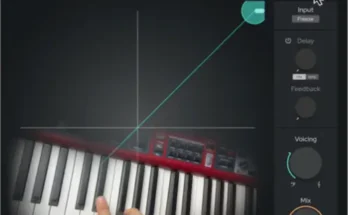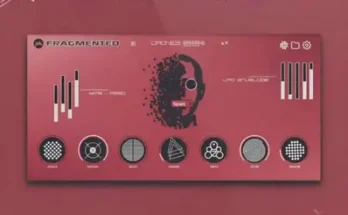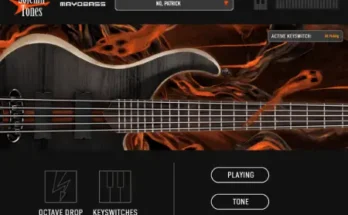DDP | 28 January 2019 | 41.5 MB
Calling Zip a compressor is like calling a Lamborghini a passenger car. It does neither one justice. Zip creates unique effects and solves thorny audio challenges in a flash, leaving traditional compressors in the dust.
Zip can provide both compression and downward expansion, switching between processors with one mouse click. Six Analysis modes – Amplitude, Quietness, Brightness, Darkness, Noisiness and Tonalness – spark compression or expansion depending on the signal level, frequency content or noise feeding Zip’s input. On bass guitar tracks, select Darkness mode to compress headroom-eating low notes while giving higher-pitched notes room to breathe. Using Noisiness mode, you can make Zip’s compressor clamp down only on overdriven electric guitar chords while leaving palm mutes on the same track loud and proud. Solving unusual audio challenges is child’s play for Zip.
Four Envelope Styles – Classic, Goopy, Quick and Extreme – modify Zip’s attack and release curves, tailoring them to your specific needs. Use Extreme’s lightning-fast response on drum room mics to explode the room’s ambience while simultaneously making the kick and snare sound tighter and punchier. On full mixes, Zip’s Classic style and High Pass filtering in the sidechain will make your mix’s bottom end thunder. Or use Goopy style to add vintage glue and density. Zip has many flavors.
For producing creative effects, Zip includes Unfiltered Audio’s flagship automatable modulation system. Eight different internal modulators, as well as a patch to an external ROLI Lightpad, can be used – up to six modulators at once – on most of Zip’s controls, with each modulator routed to as many destinations as you’d like using simple drag-and-drop technique. Using the modulators, you can easily create driving rhythmic effects that pulse in time with your music – without hassling with complicated external sidechain routing. Drag the square wave LFO’s virtual cable to the expander’s Threshold control to transform a static synth pad into a dynamic staccato keyboard part synched to your song’s tempo. Animate a lifeless synth track by patching Zip’s sawtooth LFO to the compressor’s Ratio knob, creating a Big Room EDM-style ducking effect that makes the synth swell in sync with the kick drum. Route the 16th-note Step Sequencer to Zip’s output gain to turn the plugin into a punchy Trance gate. Create a classic tremolo effect by patching the sine wave LFO to Zip’s output gain. The creative possibilities are endless.
For the final touch, Zip’s Color control lets you apply warm saturation, bright phase-modulated distortion, mangling bitcrushing or any of four 2-pole filters at the plugin’s output. Dial in a little bit of the vivid Contrast effect to fatten up female vocals and make drums pop. Two of Zip’s 2-pole filters are modulated by Analysis modes; use them in Noisiness mode on a synth track to make note attacks whipsaw its timbre. Patch Zip’s LFOs to the Color knob to create tempo-synched filter sweeps and pulsating distortion on guitar and keyboard tracks. Zip sculpts both dynamics and tone.
Smashing drums, supersizing vocals, and transforming a boring pad into a Trance anthem – Zip does it all!
► Features
Unique Analysis modes and state-of-the-art modulation system turn Zip’s compressor and expander into tools for creating riveting effects and solving difficult audio challenges
Six Analysis modes – Amplitude, Quietness, Brightness, Darkness, Noisiness and Tonalness – make Zip’s processors react more to signal level, frequency content or noise
Four Envelope Styles – Classic, Goopy, Quick and Extreme – modify Zip’s attack and release curves, providing a selection of four differently behaving compressor/expanders in one plugin
Unfiltered Audio’s flagship automatable modulation system provides eight different internal modulators and a patch to an external ROLI Lightpad, all patchable – up to six modulators at once – to most of Zip’s controls
Modulators include Sine, Sawtooth/Triangle and Square LFOs; Input Follower; Macro Control; Sample and Hold Noise; Step Sequencer; ROLI Lightpad; and Gain Reduction
Continuously variable Color control provides post-dynamics processing in seven modes, respectively offering phase-modulated distortion, soft saturation, bitcrushing, and four 2-pole pass filters (two of which feature cutoffs modulated by Zip’s Analysis modes)
Internal and external sidechains are equipped with High Pass and Low Pass filters and an Audition button for hearing the signal the detector acts on
Controls for wet/dry mix (for parallel compression), lookahead (affecting both sidechains), switchable peak or RMS detection, and automatic makeup gain
Informative real-time display graphically depicts the current threshold, ratio and knee, and shows multi-colored traces for sidechain, output and gain reduction levels
[toggle title=”Home page”]https://goo.gl/kgJA3N[/toggle]

http://alfalink.to/8b1d1819083fd8cae921
Please REPORT in Comment Broken Links




